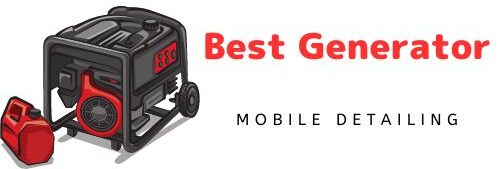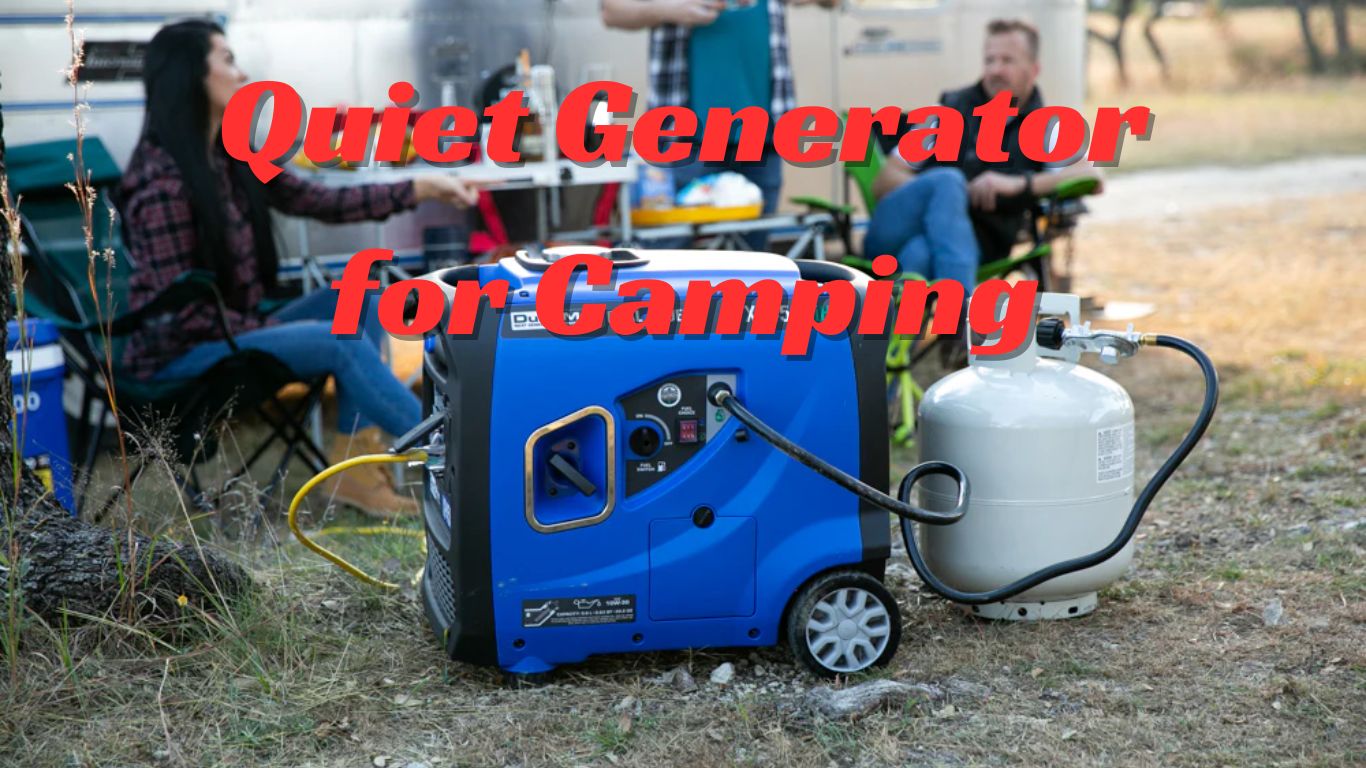Camping is a serene escape from the hustle and bustle of daily life, allowing campers to reconnect with nature and enjoy peaceful surroundings. A quiet generator for camping ensures that this tranquility is maintained, providing necessary power without disturbing the natural ambiance of fellow campers.
Why Quiet Generators are Essential for the Perfect Camping Experience
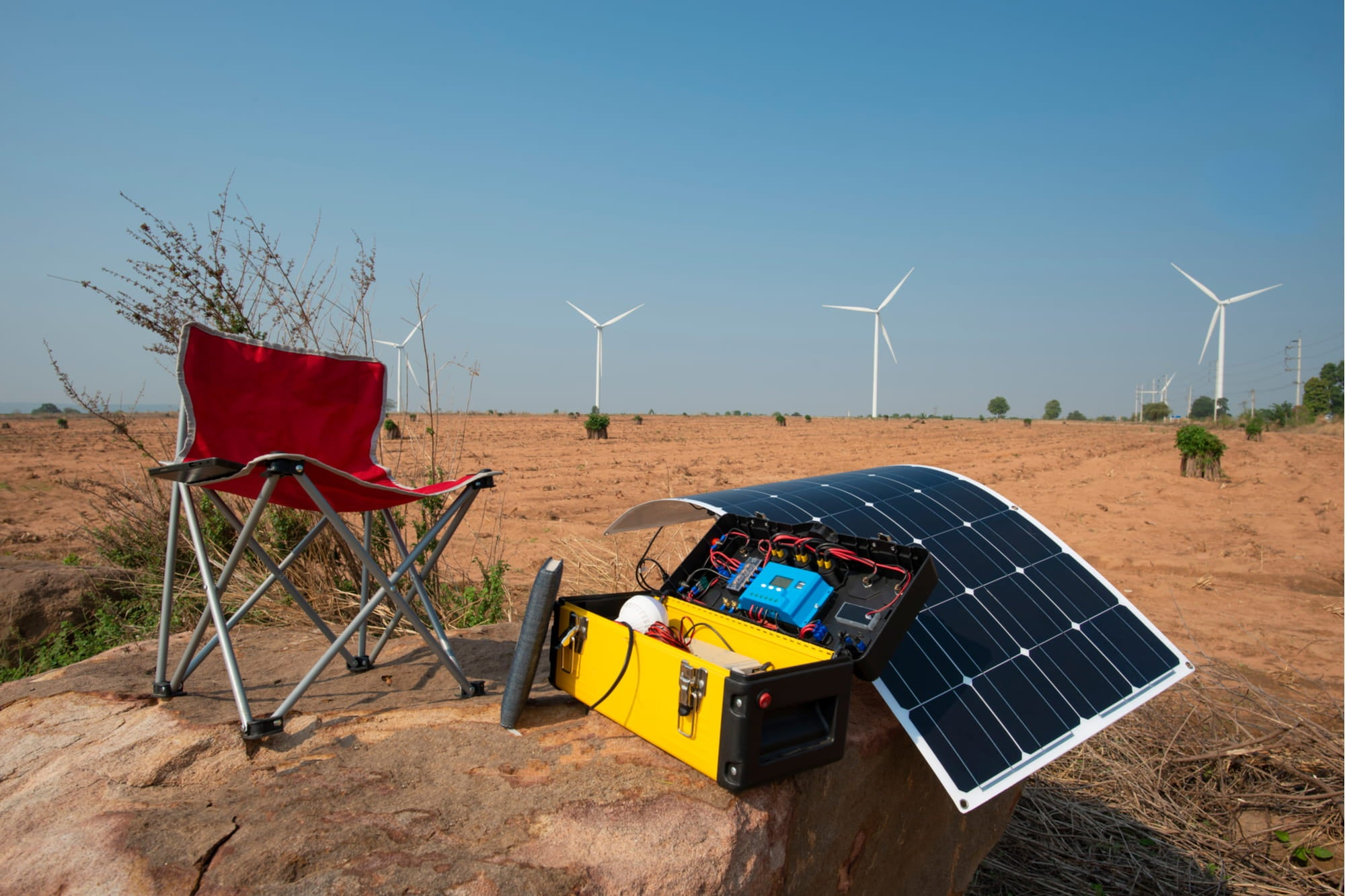
Camping offers a peaceful retreat into nature, but finding the right balance between modern conveniences and the serenity of the outdoors can be challenging. A quiet generator for camping is the perfect solution, providing the necessary power for your devices while maintaining the tranquility of your campsite.
Designed to operate with minimal noise, these generators ensure you can enjoy the natural sounds of your surroundings without disruption.
This guide explores the importance of quiet generators, their key features, top models on the market, and practical tips for using them, making your camping experience both comfortable and harmonious.
Understanding Generator Noise Levels

Understanding generator noise levels is crucial for selecting the right model for camping. The noise level of a generator, measured in decibels (dB), significantly impacts the camping experience.
Decibel Deep Dive: Understanding the Impact of dB Levels
Decibels (dB) measure the intensity of sound on a logarithmic scale. This means that every 10 dB increase represents a tenfold increase in sound intensity. For example, a sound at 70 dB is ten times more intense than a sound at 60 dB.
Understanding dB levels is crucial for choosing a generator that balances power output with minimal noise disruption, especially in a camping environment where peace and tranquility are highly valued.
Decibel levels and their effects
- 0 dB: The faintest sound the human ear can detect.
- 30 dB: A whisper or soft library noise. Considered very quiet.
- 40-50 dB: Quiet office or a refrigerator humming. Generally considered acceptable in most settings.
- 60 dB: Normal conversation at about 3 feet away. This level is considered moderate and is usually acceptable in a campground.
- 70 dB: Busy traffic or a vacuum cleaner. This is where noise can start becoming disruptive.
- 80-90 dB: Lawnmower or heavy city traffic. Prolonged exposure at this level can potentially cause hearing damage.
- 100 dB: Chainsaw or a live rock concert. Exposure to this level of noise for more than 15 minutes can result in hearing damage.
- 120 dB and above Jet plane takeoff, sirens. Immediate hearing damage can occur.
Health impacts of noise levels
- 70 dB and below is Typically safe for most individuals. Extended exposure might be annoying but not harmful.
- 80-85 dB: Prolonged exposure can cause hearing damage. It’s recommended to limit exposure to less than 8 hours per day.
- 90 dB and above: Can cause significant hearing damage with prolonged exposure. Even short-term exposure can be harmful without ear protection.
- 100 dB and above Immediate risk of hearing damage. Exposure should be limited to a few minutes, and ear protection is necessary.
When choosing a quiet generator for camping, it’s essential to select one that maintains a low noise level to ensure a peaceful environment.
Generators operating below 60 dB are ideal for campgrounds, as they produce noise levels similar to normal conversation, which is generally unobtrusive.
Generators operating between 60-70 dB are still acceptable but may be more noticeable. Anything above 70 dB can disrupt the tranquility of the camping experience and should be avoided.
Comparison between quiet and loud generators.
Quiet generators typically operate below 60 dB, akin to background music or a normal conversation. In contrast, loud generators can exceed 75 dB, comparable to city traffic or a vacuum cleaner.
This stark difference impacts the camping experience, where quieter generators are preferred to maintain a serene environment.
How noise levels affect camping experience.
Noise levels can significantly affect the camping experience. Loud generators can disrupt the peaceful ambiance, annoy fellow campers, and disturb wildlife. Quiet generators, however, blend into the background, ensuring that the primary allure of camping—nature’s tranquility—remains undisturbed.
Why Choose a Quiet Generator for Camping?
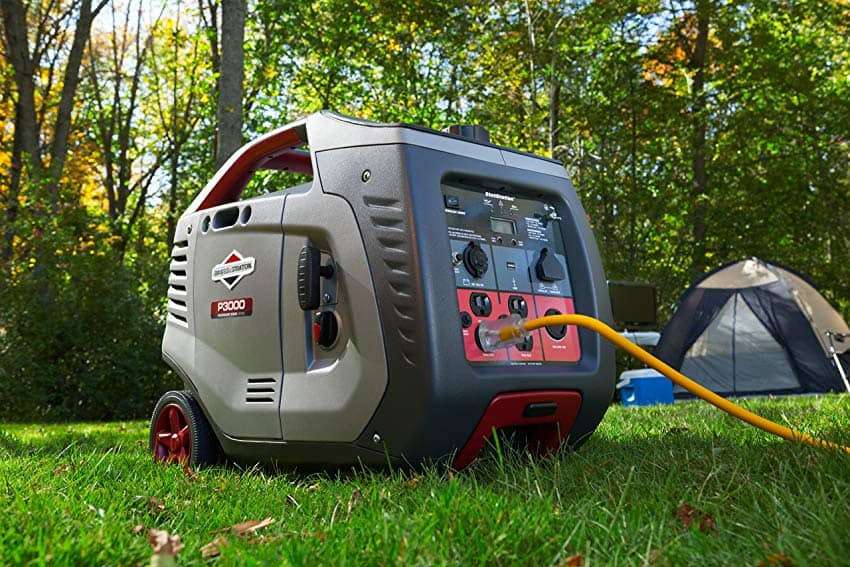
When camping, using a noisy generator is often prohibited as it can annoy or disturb fellow campers. Therefore, opting for a quiet generator with a low decibel output is essential.
The ideal noise level for a campsite is between 50 and 70 decibels. Choosing a quiet generator ensures a peaceful environment, allowing everyone to enjoy the tranquility of nature without unwanted noise disruptions.
Keep the Peace: How Quiet Generator Amplify Our Campground Experiment
Maintaining a peaceful environment in campgrounds is vital for a positive camping experience. Quiet generators play a crucial role in this, as they ensure the serene sounds of nature are not drowned out by mechanical noise.
Peace Matters: Why Maintaining Quiet Spaces is Essential
Campgrounds are cherished for their peaceful and natural settings. A quiet generator ensures that the harmony of the environment is preserved, allowing campers to enjoy the sounds of nature, such as rustling leaves, bird songs, and flowing streams, without intrusive noise.
The gentle hum of a quiet generator blends into the background, contributing to the overall ambiance rather than detracting from it.
The Harsh Reality of Noisy Generators
Noisy generators can cause significant disturbances, interrupt conversations, disrupt sleep, and generally create an unpleasant atmosphere. This noise pollution can lead to complaints from fellow campers and detract from the overall camping experience.
The harsh, persistent noise from a loud generator can overpower natural sounds, leading to frustration and dissatisfaction among campers. This is why selecting a generator with a lower dB level is crucial for maintaining the desired peace and tranquility of a camping trip.
Keeping Up with Campground Rules.
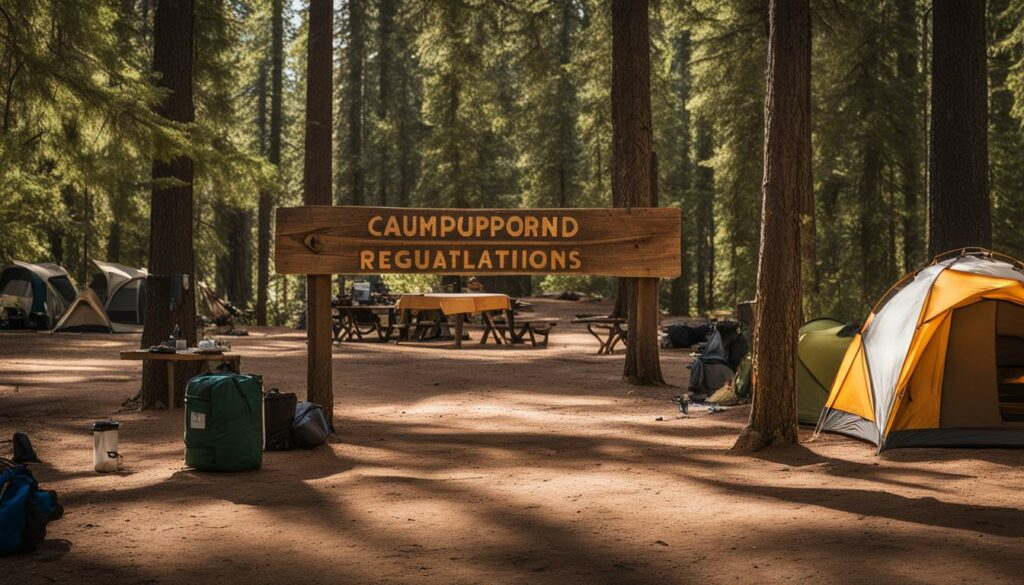
Compliance with campground noise regulations is essential to avoid penalties and maintain a positive relationship with fellow campers and campground staff.
What are the rules of the campground about noise regulation?
Many campgrounds have strict noise regulations to preserve the peace and tranquility of the natural environment. These regulations are designed to ensure that all campers can enjoy their stay without being disturbed by excessive noise. Below are detailed aspects of typical campground noise regulations:
- Quiet hours: Most campgrounds enforce quiet hours from late evening to early morning, typically from 10 PM to 7 AM. During this time, campers must minimize noise to ensure a restful environment for all.
- Maximum allowable noise levels: Campgrounds often set maximum noise levels, commonly around 60 dB (normal conversation level), to prevent disturbances. Generators and other equipment exceeding this limit are usually restricted.
- Generator use: Generator use is typically restricted to specific hours outside of quiet hours and must meet certain noise level requirements. Quiet generators, operating below a specified dB threshold, are often required.
Consequences of Ignoring Campground Noise Regulations
Non-compliance with noise regulations can lead to fines, warnings, or being asked to leave the campground. It also strains relationships with fellow campers and campground staff, tarnishing the camping experience. Using a quiet generator ensures compliance and fosters a respectful camping community.
What Makes a Generator Quiet?
When selecting a quiet generator for camping, understanding its key features is crucial. Features such as decibel ratings and inverter technology significantly influence a generator’s noise level and efficiency.
Decibel Ratings
Decibel ratings are a primary consideration when selecting a quiet generator. These ratings indicate the noise level produced by the generator, and understanding them is essential for maintaining a peaceful camping environment.
Ideal Decibel Range for Quiet Generators
The ideal decibel range for quiet generators is typically between 50 and 60 dB. This range ensures the generator is unobtrusive, allowing campers to enjoy their surroundings without significant noise interference.
How to Interpret Manufacturer Ratings
Manufacturer ratings provide insight into the noise level a generator produces under specific conditions. It’s important to consider these ratings in the context of real-world use, as factors like load and distance can influence actual noise levels.
Manufacturer noise ratings are a helpful starting point, but take them with a grain of salt. Here’s why:
- Focus on dB, but verify: Look for decibel (dB) ratings, but know testing conditions can vary. Read user reviews for real-world noise levels.
- Load matters: Noise increases as the generator works harder. Check dB ratings at different power outputs.
- Sound quality matters, too: A higher dB rating doesn’t always mean worse. Some generators might have a less annoying sound profile.
- Listen before you buy: If possible, hear the generator in person to compare noise levels and sound quality.
By combining manufacturer ratings, user experiences, and, ideally, a personal test, you can choose the quietest generator for your camping trip.
Inverter Technology
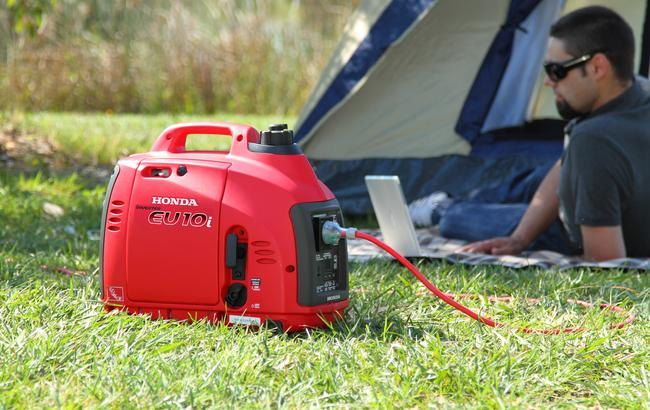
Inverter technology is another critical feature of quiet generators. Inverter generators are designed to produce cleaner, more stable power, which is particularly beneficial for sensitive electronics.
Explanation of Inverter Generators
Inverter generators produce AC power, convert it to DC, and then invert it back to clean AC power. This process results in more stable and efficient energy output, making them ideal for sensitive electronics.
Benefits of Inverter Technology for Noise Reduction
Inverter generators typically operate at lower noise levels due to their efficient design and variable speed operation. They adjust the engine speed to match the required load, resulting in quieter operation and reduced fuel consumption.
This advanced technology makes them perfect for maintaining peace in noise-sensitive environments.
Top Quiet Generators for Camping

When it comes to selecting the best quiet generator for camping, it’s essential to find a model that offers the perfect balance of power, noise level, and advanced features. A reliable and quiet generator ensures you have the necessary power for your devices while maintaining the serene environment that makes camping so enjoyable.
In this section, we will review some of the top models on the market, including the Honda EU2200i and Yamaha EF2000iSv2, detailing their features, advantages, disadvantages, and user experiences to help you make an informed decision.
Honda EU2200i
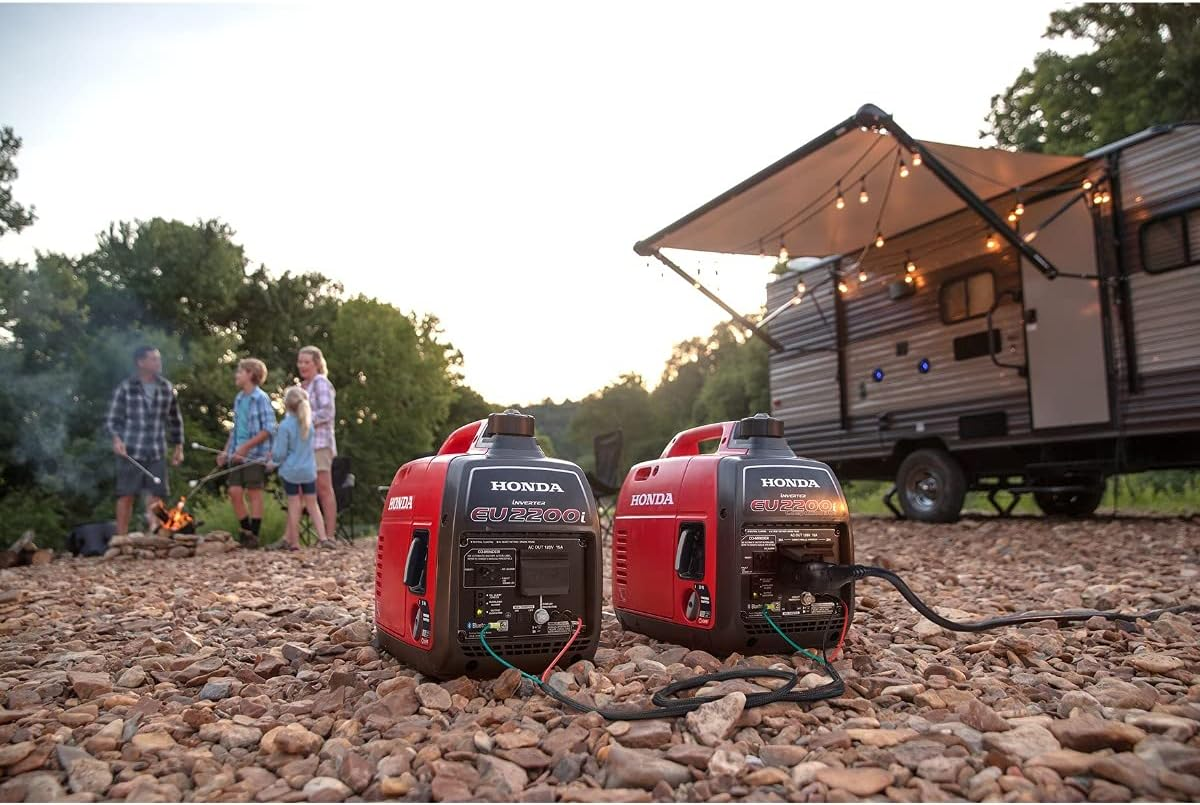
The Honda EU2200i is a popular choice among campers for its reliability, quiet operation, and fuel efficiency. Below are detailed insights into its features and user feedback.
Features and Specifications
- Output: 2,200 watts
- Weight: 53 pounds
- Noise Level: 48-57 dB
- Fuel Tank Capacity: 0.95 gallons
- Runtime: Up to 8 hours
Pros and Cons
- Pros:
- Whisper-quiet operation, quieter than a normal conversation
- Lightweight and compact design for easy storage and transportation
- Reliable Honda GXR120 commercial series engine
- Equipped with carbon monoxide detection and emergency shutoff for enhanced safety
- Compatible with the Honda My Generator mobile app for remote monitoring
- Parallel ready for connection with a second Honda EU2200i
- Cons:
- Lacks built-in USB ports, which can be inconvenient for charging small electronic devices
- Higher price point compared to other generators with similar output
User Reviews and Experiences
Users highly praise the Honda EU2200i for its quiet operation and dependability, making it a favorite for tailgating, camping, picnics, and various outdoor events. Despite not being entirely noiseless, its sound blends seamlessly into the background.
In practical tests, the generator efficiently powered a full-size refrigerator for 4 hours, consuming about half a tank of gas. It also handled a portable table saw and miter saw on a job site for an entire workday without tripping the breaker.
Users also appreciated its compatibility with the Honda My Generator mobile app for remote monitoring and its ability to pair with another Honda EU2200i for increased power output.
Yamaha EF2000iSv2

The Yamaha EF2000iSv2 is an outstanding gas-powered portable inverter generator, ideal for camping and other outdoor activities.
Known for its quiet operation and efficient performance, this model stands out as a top choice for campers looking to maintain peace and tranquility while having reliable power.
Features and Specifications
- Output: 1600 running watts / 2000 starting watts
- Noise Level: 51.5-61 dB, depending on the load
- Fuel Tank Capacity: 1.1 gallons
- Runtime: Up to 10.5 hours
- Dimensions: 17.9″ x 11″ x 19.3″
- Weight: 44.1 pounds
- Warranty: 3-year limited
- Parallel Capability: Can be operated in parallel with parallel cables to double the power output
Pros and Cons
- Pros:
- Exceptionally quiet, operating at 51.5 dB at 25% load, quieter than a normal conversation
- Lightweight and compact design for easy portability
- The fuel shutoff feature allows the carburetor to run dry, preventing starting problems after storage
- The carburetor drain feature ensures all fuel is removed, which is ideal for extended storage
- Gear-driven valve trains are more durable than belt-driven systems
- A closable vent cap prevents fuel spills and includes a fuel level indicator
- Cons:
- The premium price point for its class
- May not be sufficient for larger power needs without parallel operation
User Reviews and Experiences
The Yamaha EF2000iSv2 is highly regarded for its quiet operation and reliable performance. Many users compare it favorably to the Honda 2000-watt inverter generator, noting several unique features that make it stand out.
One reviewer highlighted the fuel shutoff and carburetor drain features as significant advantages, particularly for preventing starting issues after extended storage periods, such as over the winter. The gear-driven valve train and closable vent cap with a fuel level indicator were also mentioned as superior features.
Users appreciate the generator’s compact size and lightweight design, which make it easy to transport and store.
Practical Tips for Using Generators Quietly

Using generators quietly involves strategic placement, proper positioning, and effective soundproofing techniques. These practices help minimize noise and enhance the camping experience for everyone.
Placement and Positioning
Proper placement and positioning of the generator can significantly reduce noise levels. This involves selecting the right location and using natural barriers to your advantage.
Best Practices for Positioning Generators to Minimize Noise
Position the generator at least 20 feet away from your campsite and direct the exhaust away from your living area. Utilize natural barriers like trees or boulders to dampen noise further.
Importance of Distance and Barriers
Increasing the distance between the generator and the campsite reduces perceived noise levels. Physical barriers can absorb and deflect sound, enhancing the quietness of the generator’s operation.
Soundproofing Techniques
Proper soundproofing techniques can significantly reduce the noise your generator produces, ensuring a more peaceful camping experience. This involves using effective materials and methods, as well as some DIY tips to minimize noise further.
Effective Soundproofing Materials and Methods
Using the right materials is key to effectively soundproofing your generator. Some of the most effective soundproofing materials include:
- Acoustic Foam Panels: These panels absorb sound waves and reduce noise levels. Attach them to the interior walls of a generator enclosure.
- Mass Loaded Vinyl (MLV): This dense, flexible material blocks sound transmission. Wrap it around the generator or line the inside of an enclosure with it.
- Soundproof Blankets: These thick, heavy blankets can muffle sound when draped over the generator. Ensure proper ventilation to prevent overheating.
- Rubber Mats: Placing the generator on a rubber mat helps absorb vibrations and reduce noise.
DIY Soundproofing Tips

For a hands-on approach, here are some DIY soundproofing tips:
- Build a Soundproof Enclosure: Create a box using plywood and line it with acoustic foam panels or MLV. Include ventilation holes to prevent overheating. The enclosure should balance airflow and noise containment.
- Position Strategically: Place the generator at least 20 feet away from your campsite, behind natural barriers like trees or rocks, to reduce perceived noise levels.
- Use a Muffler: Install an aftermarket muffler designed for generators to reduce exhaust noise, often the loudest part.
- Elevate the Generator: Place the generator on a raised platform or table to reduce direct ground vibration and noise transmission.
FAQs
How quiet should a generator be for camping?
For a generator to be considered quiet enough for camping, it should operate at a noise level of around 50 to 60 decibels (dB). This range is comparable to a normal conversation or background music, ensuring it doesn’t disturb the peace and tranquility of the camping environment.
Which generator is the quietest?
The Honda EU2200i and Yamaha EF2000iSv2 are among the quietest generators available, both operating at noise levels between 48-61 dB depending on the load. These models are specifically designed to minimize noise, making them ideal for camping and other noise-sensitive environments.
How many dB is a silent generator?
While no generator is completely silent, a “silent” generator typically operates below 60 dB. Generators that produce noise levels around 50 to 60 dB are often referred to as silent or ultra-quiet generators, suitable for maintaining a peaceful camping atmosphere.
What size generator do you need for camping?
The size of the generator you need for camping depends on your power requirements. For most camping needs, a generator with an output of 1,500 to 2,500 watts is sufficient. This range can power essential devices such as lights, a small refrigerator, a coffee maker, and charging devices. For more extensive setups, consider generators with higher wattage or the capability to connect two units in parallel.
Conclusion
Investing in a quiet generator for camping is essential for maintaining the serene environment that camping enthusiasts seek. By understanding noise levels, adhering to regulations, and choosing the right generator, you can enjoy reliable power without compromising the tranquility of your outdoor experience.
Quiet generators not only comply with campground rules but also enhance the overall enjoyment of camping, ensuring a peaceful and pleasant stay for all.
Marion Woods is an accomplished generator technology expert with over 15 years of experience, currently serving as the Chief Technology Officer at GenTech Power Solutions. She holds a Master’s degree from MIT and specializes in enhancing generator efficiency and integrating renewable energy sources. Marion is a respected author and speaker in the engineering community, dedicated to pioneering sustainable power solutions.
